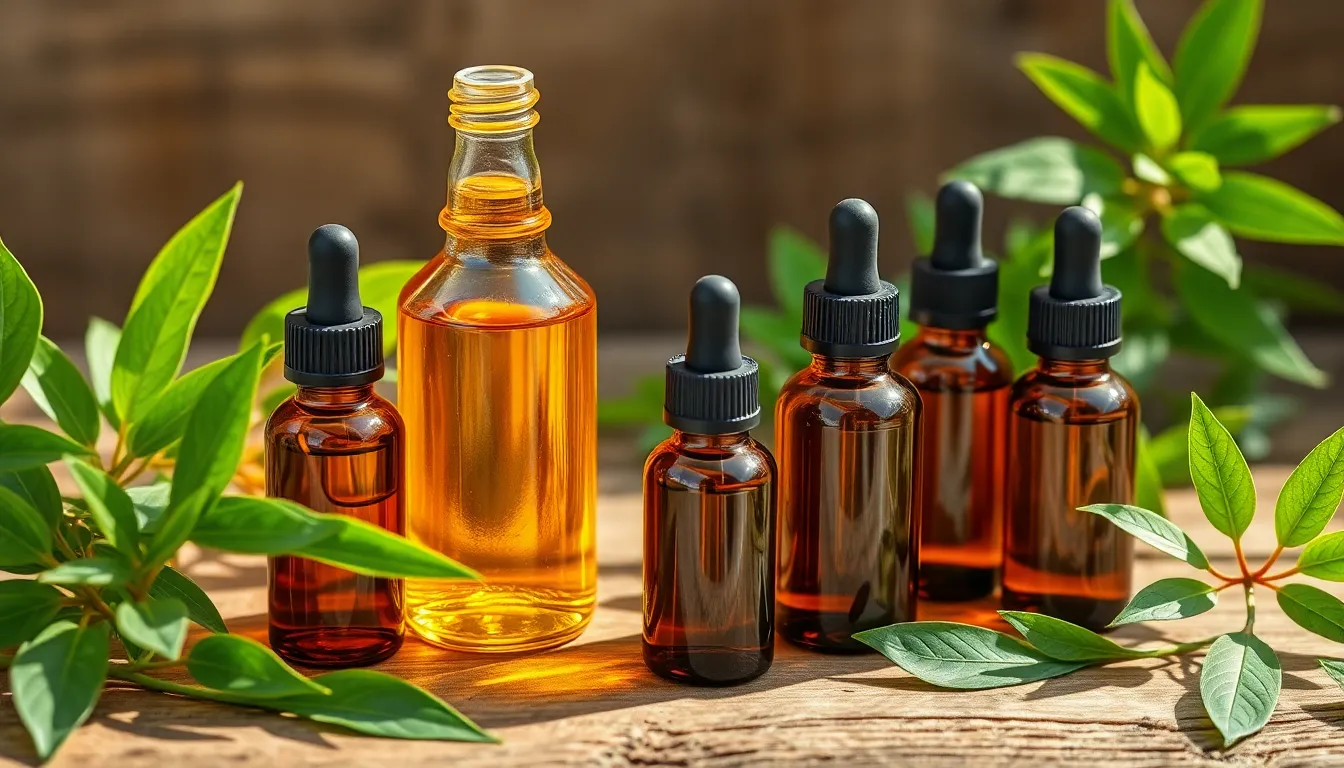Key Takeaways
- Essential oils do expire; their shelf life depends on botanical origin, extraction method, and storage conditions, with some oils lasting 1–2 years and others up to 8 years.
- Signs of expired essential oils include changes in aroma, colour, and texture, which can signal loss of potency and may cause skin irritation or allergic reactions.
- Proper storage—using amber or cobalt glass bottles, keeping oils in cool and dark places, and tightly sealing containers—helps extend their longevity and preserve efficacy.
- Regularly monitoring purchase and opening dates, and following supplier guidance, ensures you use essential oils before they expire, maintaining product safety and effectiveness.
- Dispose of expired or degraded oils responsibly to avoid potential health risks and comply with best industry practices.
Carrier oils are plant-derived base oils used to safely dilute essential oils for topical application in aromatherapy, skincare, and cosmetics. Popular varieties like sweet almond, jojoba, coconut, and grapeseed each offer distinct benefits including moisturising properties and varying absorption rates suited to different skin types. Professional suppliers such as Range Products provide bulk wholesale carrier oils with complete quality documentation and certificates of analysis to ensure consistent, traceable ingredients for manufacturing applications.
Understanding Essential Oils
Essential oils are concentrated plant extracts created through methods like steam distillation or cold pressing. Steam distillation uses heat and water to separate and collect volatile aromatic compounds, commonly used for lavender, eucalyptus, and tea tree oils. Companies like Range Products in Welshpool, Western Australia, source essential oil raw materials globally, ensuring consistent quality through independent laboratory testing and certificates of analysis for each batch.
Bulk wholesale essential oils undergo quality control that includes authentication, contaminant screening, and stability testing before distribution. Buyers—such as aromatherapists, cosmetics manufacturers, and bath product designers—benefit from these standards by receiving oils with verified botanical origin, composition, and safety data.
Carrier oils, like jojoba or sweet almond, dilute essential oils for safe topical use and extend application across body and bath products. Range Products supplies both essential and carrier oils in wholesale quantities to home-based creators and commercial enterprises, supporting product formulation with technical documents and traceability. These measures help maintain ingredient shelf life and integrity, allowing creators and manufacturers to plan production cycles with confidence.
Can Essential Oils Expire?

Essential oils possess a finite shelf life, meaning their quality alters over time. These concentrated plant extracts, like those sourced and independently tested by Range Products in Welshpool, Western Australia, remain stable only under certain conditions.
What Expiry Means for Essential Oils
Expiry for essential oils means a decline in their chemical composition, potency and safety. Degraded oils, such as oxidised citrus or rancid base oils, may cause skin irritation or lose therapeutic fragrance. Certificates of analysis from suppliers like Range Products confirm freshness and stability before dispatch, but post-purchase storage and handling impact longevity. Expired oils might change in colour, viscosity or odour, signalling reduced efficacy and potential for adverse effects.
Factors Affecting Shelf Life
Factors influencing shelf life in essential oils include botanical origin, extraction method, and environmental exposure. Citrus oils, like lemon and orange, oxidise within 1-2 years due to volatile top notes, while oils like patchouli or sandalwood often last 5-8 years. Light, heat, air and container type—such as clear glass versus amber—alter degradation speed. Range Products assists customers by supplying storage recommendations and batch-specific shelf life data, ensuring ingredient traceability from bulk wholesale to small creation scale.
Signs That Essential Oils Have Expired

Expired essential oils show detectable changes in quality. Industry standards, including those used at Range Products in Welshpool, Western Australia, emphasise early identification to prevent unwanted effects in end products.
Changes in Smell, Colour, and Texture
Expired essential oils display noticeable changes in their physical properties. Aroma often becomes faint, sour, or different from the original scent—such as lemon oil developing a stale, almost medicinal odour. Colour can darken or become cloudy, as seen in citrus and floral oils that oxidise quickly. Texture may thicken or separate, which is common in oils stored in poor conditions or past their stated shelf life on the Range Products certificate of analysis. These visual and olfactory checks allow small-batch makers or larger manufacturers to spot degradation before use.
Effects on Safety and Effectiveness
Expired essential oils lose both safety and potency. Therapeutic value diminishes as volatile compounds like limonene and linalool break down. Products made with degraded oils may trigger skin irritation or allergic reactions, as seen in patchouli or tea tree oils that oxidise beyond recommended time frames. Range Products’ shelf life data and batch testing help avoid expired stock entering production, supporting businesses in aromatherapy, cosmetics, and wellness industries that require regulatory compliance and consistent end-product efficacy.
How to Store Essential Oils for Longevity
Correct storage extends the shelf life and preserves the potency of essential oils. Range Products, based in Welshpool, Western Australia, recommends practices that protect both the chemical composition and safety profile of pure oils.
Best Storage Practices
Store essential oils in amber or cobalt glass bottles that shield contents from UV light, lowering oxidation risk. Maintain a consistent storage temperature between 10°C and 20°C, using a cool, dark space away from heat sources and sunlight. Secure bottle caps tightly after each use to prevent air or moisture ingress, which can degrade oil quality. Segregate essential oils from strong-smelling substances and direct sunlight exposure during storage and transport to protect their original aroma. Range Products supplies bulk wholesale quantities in airtight, light-resistant containers for professionals and home-based users, with technical documents stating proper storage for each batch.
Tips to Prolong Shelf Life
Use droppers or dispensers rather than pouring directly from the bottle, if handling small volumes, to reduce oxygen introduction and accidental contamination. Record the purchase and opening dates for each oil to monitor freshness, as citrus extracts expire rapidly, within 12 to 24 months, while stable oils like sandalwood or patchouli remain usable for up to 8 years if stored correctly. Limit bottle opening times and always recap immediately. Request batch-specific shelf life and storage guidance from suppliers such as Range Products, which provides customers with certificates of analysis, stability data, and best practice recommendations tailored to the oil type and lot number. Maintain up-to-date safety data sheets and rotate stock to ensure only in-date essential oils reach manufacturing or end-use applications.
When to Dispose of Essential Oils
Routine monitoring of essential oils ensures product safety. Disposal becomes necessary when oils exhibit changes in aroma, colour, or consistency, as these shifts suggest chemical degradation. Lemon oil, for example, releases a sour or stale odour after oxidising, while lavender oil darkens and thickens as it loses viability.
Expired essential oils can cause adverse reactions, including skin irritation or allergic responses during topical use, especially in bath or massage products. Companies, such as Range Products in Welshpool, Western Australia, confirm expiry through periodic stability testing and batch-specific certificates of analysis. Oils sourced and distributed for bulk wholesale lose their manufacturing integrity once past their shelf life window—citrus oils after 12–24 months, vetiver or sandalwood between 5–8 years.
Responsible disposal involves emptying unused oils into absorbent material, sealing it in a container, and following local waste regulations. Range Products’ customer service provides instructions for expiration-sensitive disposal and regularly updates batch traceability, supporting professional practitioners, home formulators, and manufacturers across the cosmetics, aromatherapy, and wellness industries.
Conclusion
Essential oils are prized for their natural benefits but they aren’t immune to the effects of time and exposure. Recognising the signs of expiry and following proper storage practices helps users get the most out of their oils while staying safe.
With reliable suppliers like Range Products offering detailed shelf life data and technical support both home enthusiasts and industry professionals can feel confident in their essential oil choices. Responsible use and disposal ensure that these powerful plant extracts remain a safe and effective part of daily routines.
Frequently Asked Questions
Can essential oils expire?
Yes, essential oils can expire. Their chemical composition changes over time, leading to a loss of potency, altered scent, and in some cases, increased risk of irritation or allergic reactions. It’s important to check for changes in smell, colour, or consistency and adhere to recommended shelf life guidelines.
How long do essential oils generally last?
Shelf life varies by type. Citrus oils usually last 1-2 years, while oils like patchouli or sandalwood can last 5-8 years. Always check the batch-specific shelf life provided by the supplier to ensure the oil’s quality and safety.
What is the best way to store essential oils?
Store essential oils in amber or cobalt glass bottles away from direct sunlight, in a cool location (10°C to 20°C). Keep caps tightly closed and use droppers to minimise exposure to air. Record the purchase and opening dates for reference.
What are the signs that an essential oil has expired?
Expired essential oils may have a stale or sour smell, a darker or cloudy appearance, or a thicker texture. Any noticeable change in aroma, colour, or consistency is a clear indicator of degradation and the oil should not be used.
Are expired essential oils dangerous to use?
Yes, expired essential oils can be unsafe. They may cause skin irritation, allergic responses, or lose their therapeutic benefits. Never use degraded oils for topical applications or inhalation, especially in products for sensitive skin.
Can carrier oils extend the shelf life of essential oils?
Carrier oils do not extend the shelf life of essential oils. In fact, most carrier oils will expire sooner than essential oils, making it important to check the shelf life of both components when making blends.
How should I dispose of expired or unused essential oils?
Mix expired oils with absorbent material, such as sand or coffee grounds, then dispose of them according to your local waste guidelines. Never pour essential oils down drains or into the environment, as they can harm waterways.
How do companies like Range Products maintain essential oil quality?
Companies like Range Products conduct independent lab testing, provide certificates of analysis, and follow strict quality control—including authentication, contaminant screening, and stability testing—to ensure their essential oils are pure, safe, and effective for customers.
Why is batch-specific shelf life important?
Batch-specific shelf life reflects the unique processing, storage, and testing conditions of each batch, ensuring customers get accurate information for optimal product use and safety. This is essential for commercial users to maintain product efficacy and regulatory compliance.
Do essential oils need to be refrigerated?
Refrigeration isn’t necessary for most essential oils but can prolong freshness, especially for citrus oils or when storing large quantities. Always let refrigerated oils reach room temperature before use to avoid condensation inside bottles.
